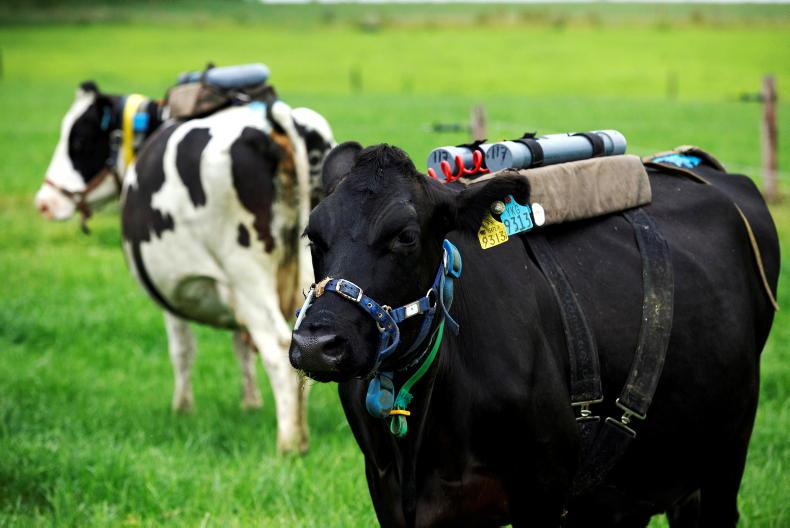A methane vaccine for ruminants could be the “holy grail” for agriculture.
This is the view of Kerry-born scientist John Roche, who is centrally involved in New Zealand’s drive to cut greenhouse gas emissions from farming.
Castleisland native Roche, who is the chief science adviser at New Zealand Ministry for Primary Industries (MPI), believes that the development of a methane vaccine could be a game changer for farmers globally, as it has the potential to cut agricultural emissions by 10% to 20%.
“The research is in its early stages, but all the indications to date are positive. All of the reviews to date have said that there is no reason to think that the vaccine won’t work,” Roche said.
'Risky'
“But it’s one of those pieces of science that’s extremely risky,” he cautioned.
“These research projects are really high risk, and high failure, but very high reward if they’re successful,” Roche explained.
The vaccine works by creating antibodies in the animal’s saliva that disrupts the ability of microorganisms in the rumen to produce methane.
We’re now at the stage of assessing if the vaccine knocks down the methane
“The vaccine has been proven to work in the lab and the animals have been proven to produce the antibodies when vaccinated.
"We’re now at the stage of assessing if the vaccine knocks down the methane - that’s the step in the research pipeline that needs to be accelerated,” Roche explained.
If successful, it is envisaged that animals would be vaccinated on an annual basis.
Roche, who is one of the guest speakers at this week’s Agricultural Science Association (ASA) conference in Kilkenny, was reluctant to commit to a timeline for completion of the project.
'Unlikely to restrict access'
However, he maintained that New Zealand was unlikely to restrict access to the vaccine in the event of it being proven to work.
“There is certainly no discussion that it [the vaccine] would be held within New Zealand,” Roche said.
“There is significant opportunities to do good in the world if we are successful,” he pointed out.
Up to €200m is being invested by the New Zealand government in researching new technologies to reduce greenhouse gas emissions from agriculture, with the vaccine project being a key plank in this drive.
New Zealand has committed to reducing methane emissions from the agriculture sector by 10% by 2030, with the target range for 2050 being 24% to 47%.
While Roche accepted that the targets represented “a challenge” for the farm sector, he expressed confidence that the targets set could be met.
Effluent ponds
He pointed out that close to 5% of New Zealand’s methane emissions were from effluent ponds and that the science existed to cut these to zero.
He predicted that breeding for “low-methane animals” could cut a further 5% to 7% over the coming 10 to 15 years, while research was continuing into various inhibitors.
The efforts of New Zealand’s farm sector in relation to climate change have been helped by the fact that methane is treated separately from other greenhouse gases.
Commenting on this approach, Roche said: “Well, it recognises the difference between the gases. It recognises that methane, although it has a large heating effect, this is only for a short time. And, therefore, methane doesn’t need to go to zero to have no warming impact.
“It does have to drop, but it doesn’t have to drop to zero. And what is currently being debated in science is how far it does need to drop.”






 This is a subscriber-only article
This is a subscriber-only article










SHARING OPTIONS: